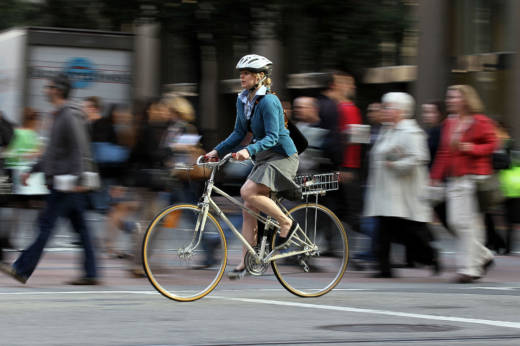A proposal to allow bikes to roll through intersections has come to a skidding stop -- for now.
AB 1103 would have let bicyclists treat stop signs like yield signs. On Monday, the measure stalled in an Assembly committee.
An unlikely duo brought the legislation: San Francisco Democrat Phil Ting and Republican Jay Obernolte, whose district lies in the Mojave Desert.
They are united by a belief that bicyclists would be safer if the law allowed what so many cyclists already do -- roll through stop signs.
"We're just trying to have the law reflect what happens in reality," Ting says. "People stop at stop signs when it's dangerous, and people don't stop at stop signs when it's empty and when it's clear."

